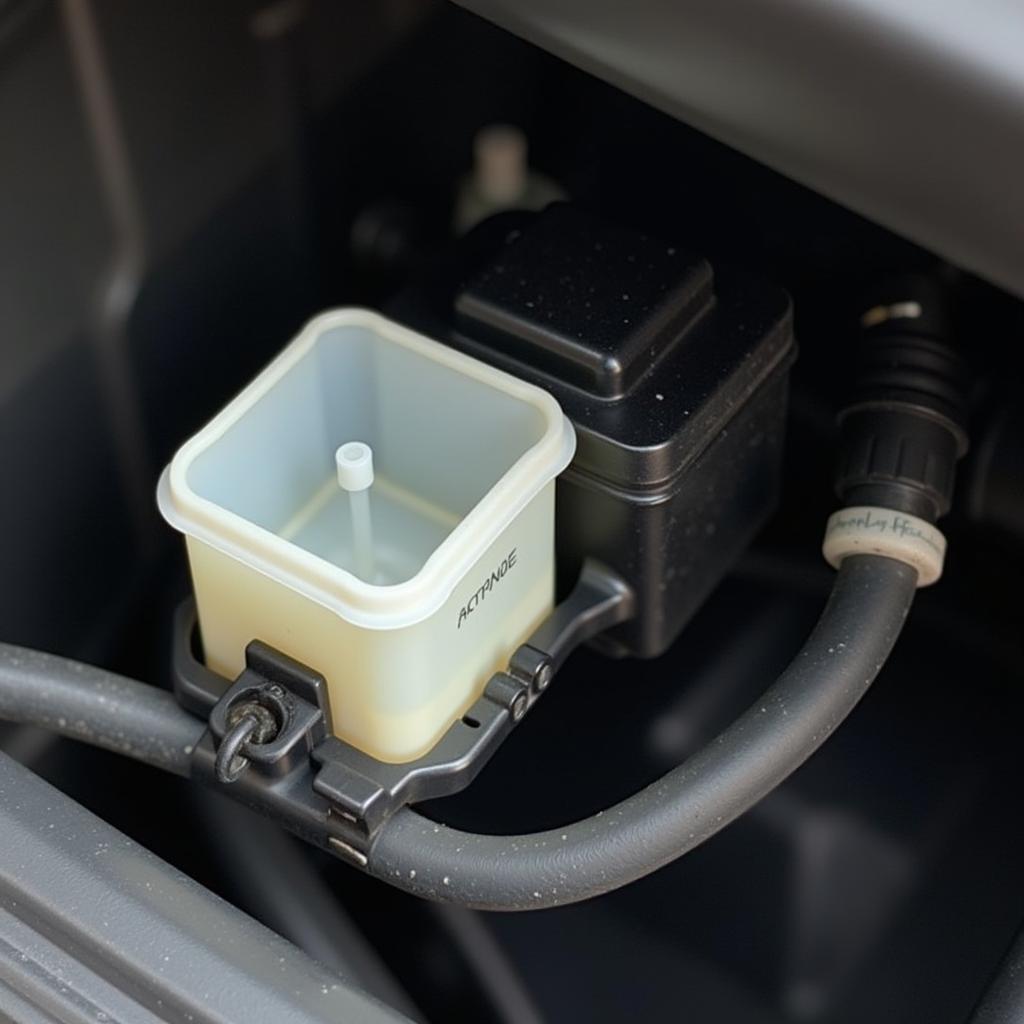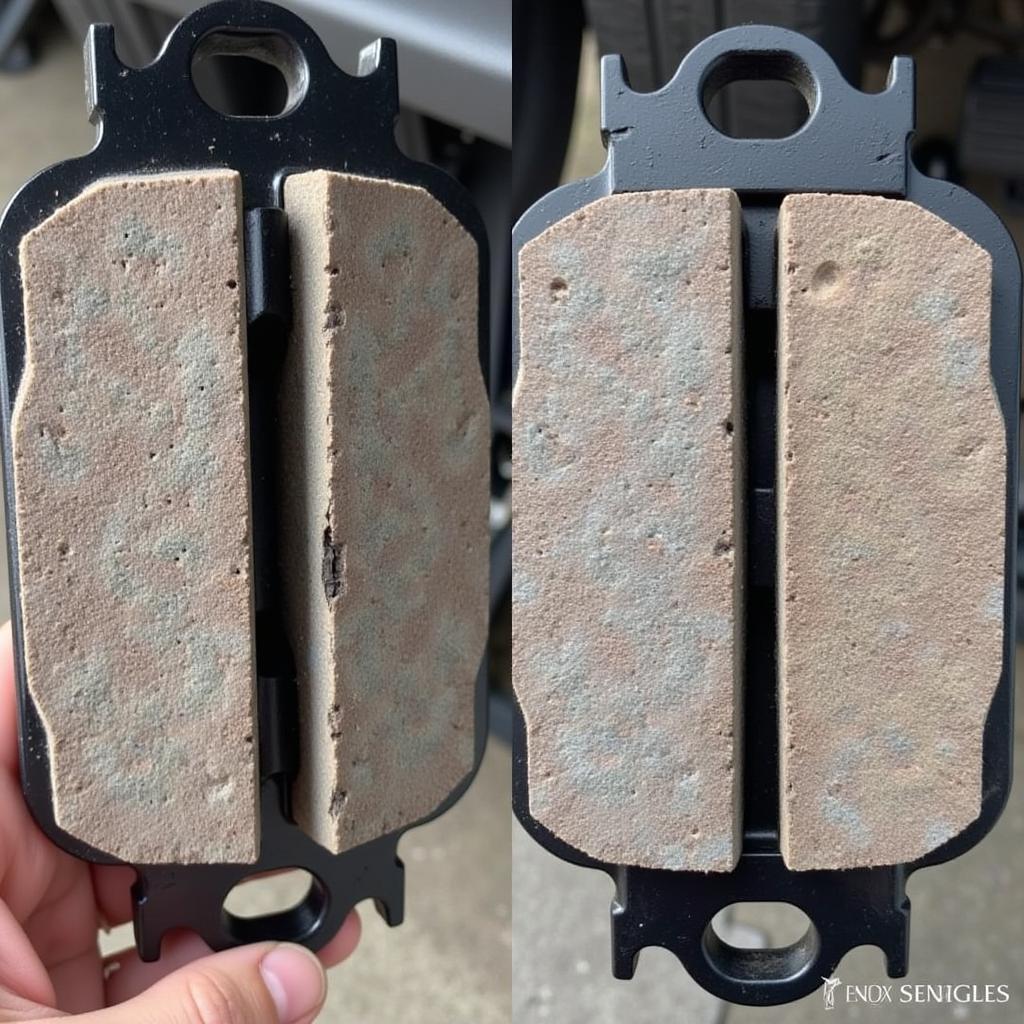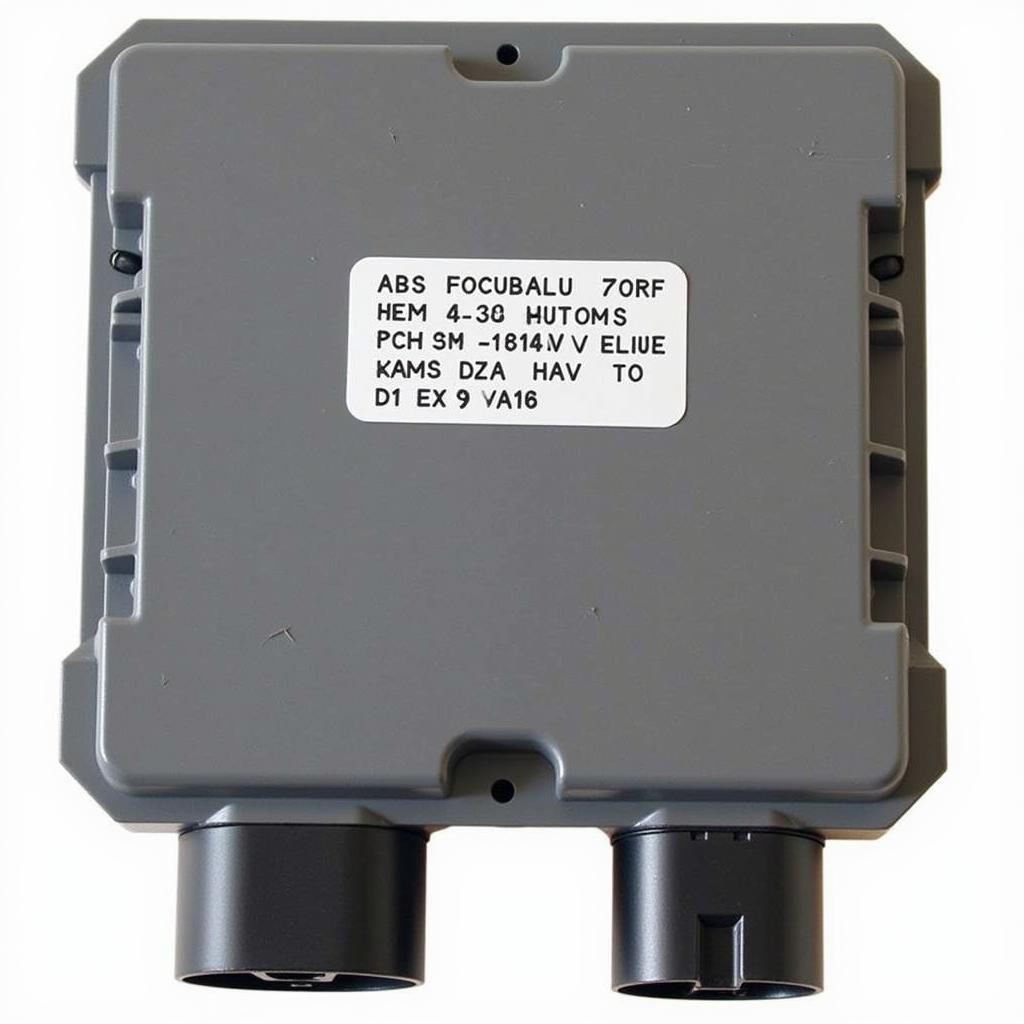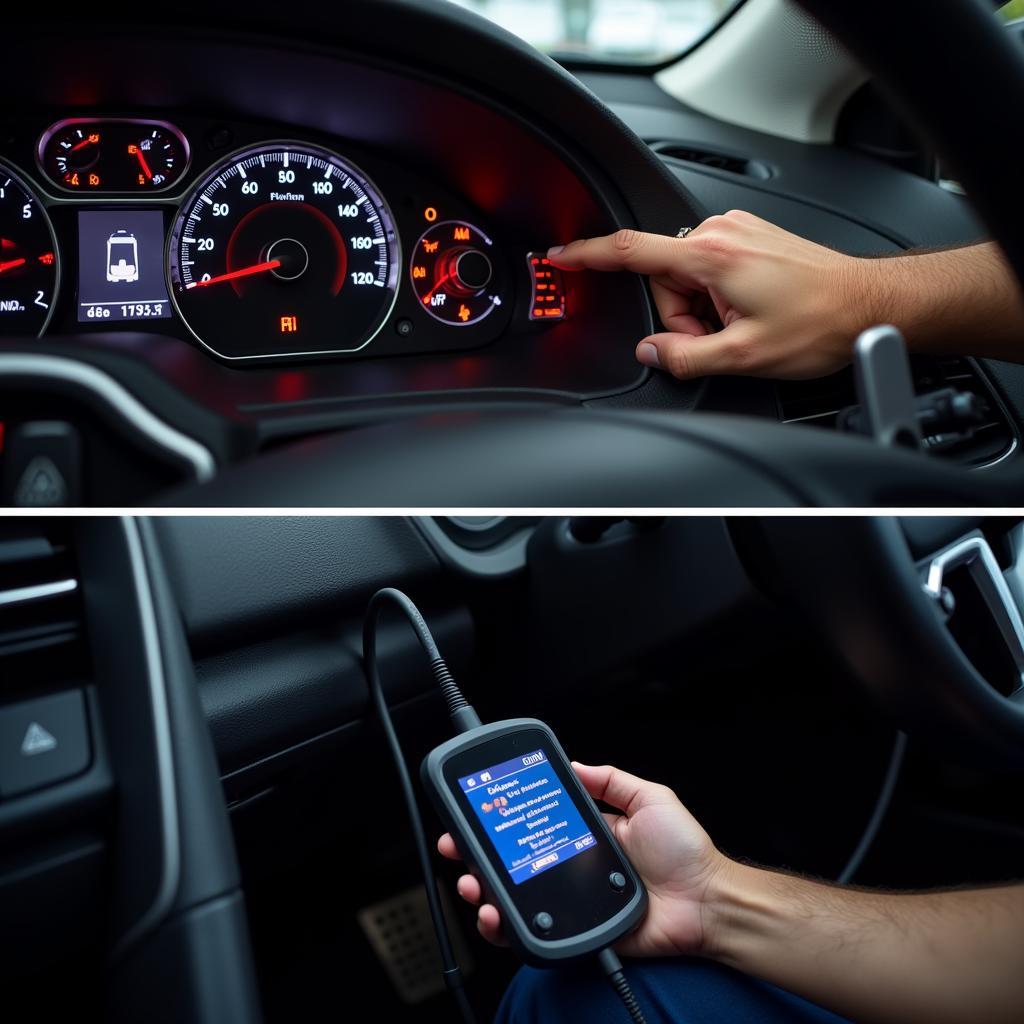The brake warning light on your Dodge Avenger illuminating can be a nerve-wracking experience, especially if you’re unsure of its cause. This comprehensive guide delves into the common culprits behind a Dodge Avenger brake warning light, empowering you to diagnose and address the issue effectively.
Understanding Your Dodge Avenger’s Brake Warning Light
Your Dodge Avenger’s brake warning light serves as a crucial safety feature, alerting you to potential issues within the braking system. When this light flickers or remains illuminated, it signals that immediate attention is required. Ignoring this warning could jeopardize your safety and that of your passengers.
Common Causes of a Dodge Avenger Brake Warning Light
Several factors can trigger the brake warning light in your Dodge Avenger. Let’s explore the most prevalent causes:
1. Low Brake Fluid Level
 Dodge Avenger Low Brake Fluid
Dodge Avenger Low Brake Fluid
The most common culprit behind a glowing brake warning light is a low brake fluid level. Brake fluid plays a vital role in transferring hydraulic pressure to the brakes, enabling them to function correctly. A leak in the system can lead to a drop in brake fluid, triggering the warning light.
2. Worn Brake Pads
 Worn Brake Pads Dodge Avenger
Worn Brake Pads Dodge Avenger
Brake pads are designed to wear down over time. As they wear, the brake pad material thins, eventually reaching a point where it triggers a sensor in the brake system. This sensor activates the brake warning light, signaling the need for brake pad replacement.
3. Faulty Brake Light Switch
The brake light switch is responsible for activating your brake lights when you press the brake pedal. A malfunctioning brake light switch can disrupt this process, illuminating the brake warning light.
4. ABS Issues
 Dodge Avenger ABS Module
Dodge Avenger ABS Module
If your Dodge Avenger is equipped with an Anti-lock Braking System (ABS), a problem with this system can also trigger the brake warning light. ABS sensors, control modules, or wiring issues can all contribute to this.
5. Other Potential Causes
While less common, other potential causes for a Dodge Avenger brake warning light include:
- Faulty brake caliper: A seized or malfunctioning brake caliper can lead to uneven brake pad wear and potentially trigger the warning light.
- Damaged brake lines or hoses: Leaks or damage in the brake lines or hoses can cause brake fluid loss and activate the warning light.
- Electrical issues: Problems with the wiring harness or electrical connections within the braking system can disrupt communication and illuminate the warning light.
Troubleshooting Your Dodge Avenger Brake Warning Light
When your Dodge Avenger’s brake warning light illuminates, it’s crucial to diagnose the issue promptly. Here’s a step-by-step guide to help you troubleshoot the problem:
-
Check the brake fluid level: Park your car on a level surface and locate the brake fluid reservoir. The reservoir will typically have a “max” and “min” marking. If the fluid level is below the “min” marking, add the appropriate brake fluid.
-
Inspect the brake pads: If the brake fluid level appears normal, visually inspect the brake pads through the spaces between the wheel spokes. Thin brake pads indicate wear and require replacement.
-
Check the brake light switch: Locate the brake light switch, usually positioned above the brake pedal arm. Test the switch by pressing and releasing the brake pedal while observing if the brake lights illuminate correctly. If not, the switch might need replacement.
-
Consult a professional: If you’re unable to identify the cause of the brake warning light or suspect a more complex issue like ABS problems, it’s best to seek assistance from a qualified mechanic or dealership.
2008 Dodge Avenger Brake Warning Light
While the aforementioned causes apply to most Dodge Avenger models, certain years might have specific vulnerabilities. For instance, the 2008 Dodge Avenger is known to experience issues with the brake light switch. If you own a 2008 model and encounter a brake warning light, inspecting the switch is a prudent first step.
Dodge Avenger Brake Light Warning
Maintaining your Dodge Avenger’s braking system is paramount for your safety. Regular brake inspections, timely fluid top-ups, and prompt attention to warning lights are essential practices.
Conclusion
A glowing brake warning light in your Dodge Avenger should never be ignored. By understanding the common causes and following the troubleshooting steps outlined in this guide, you can address the issue effectively. Remember, a well-maintained braking system ensures your safety and that of your passengers. When in doubt, always consult a qualified professional for diagnosis and repair.
FAQ
-
What should I do if my Dodge Avenger brake warning light comes on while driving?
If safe to do so, pull over to a safe location, turn off the engine, and assess the situation. Check the brake fluid level and visually inspect the brake pads if possible. If you suspect a serious issue or are uncomfortable diagnosing the problem yourself, contact a tow truck and have your vehicle transported to a trusted mechanic or dealership. -
Can I drive my Dodge Avenger with the brake warning light on?
Driving with the brake warning light on is strongly discouraged. It indicates a potential problem with your braking system, compromising your ability to stop safely. Continuing to drive could worsen the issue and lead to a complete brake failure. -
How often should I check my Dodge Avenger’s brake fluid level?
It’s good practice to check your brake fluid level at least once a month. This ensures early detection of any leaks or drops in fluid level. Additionally, consult your owner’s manual for recommended brake fluid flush intervals. -
How much does it cost to fix a Dodge Avenger brake warning light issue?
The cost of repair can vary significantly depending on the underlying cause. A simple brake fluid top-up might cost only a few dollars, while replacing worn brake pads could range from $50 to $200 or more, depending on the type of pads and labor costs. More complex issues like ABS repairs can cost considerably more. -
How do I know if my Dodge Avenger needs new brake pads?
Apart from the brake warning light, other signs of worn brake pads include a squealing or grinding noise when braking, a spongy or soft brake pedal feel, and a longer stopping distance than usual. -
Can I replace my Dodge Avenger’s brake pads myself?
If you possess mechanical skills and the necessary tools, replacing brake pads can be a DIY project. However, if you’re unsure about the process, it’s always recommended to have it done by a qualified professional to ensure proper installation and safety. -
2012 Dodge Avenger Brake Warning Light: Are there any specific issues associated with this model year?
The 2012 Dodge Avenger, like any other vehicle, can experience brake issues. However, no specific widespread problems are commonly reported for this model year regarding the brake warning light. It’s essential to remember that regular maintenance and timely repairs can prevent most brake problems, regardless of the model year.

